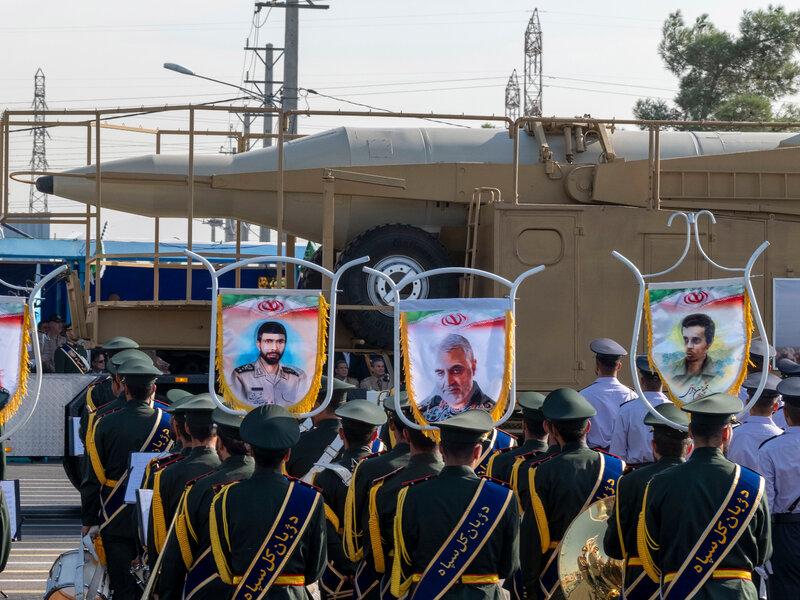In the shadowy world of global politics, where nations constantly vie for power and influence, the quiet whispers of covert operations often go unnoticed by the general public. However, a recent development has sent shockwaves through the international community: Israel’s clandestine deployment of air-launched ballistic missiles to strike Iran. This bold and secretive move has raised eyebrows and stirred speculation about the future of tensions in the already volatile Middle East. Join us as we delve into the details of this mysterious and potentially game-changing event.
Introduction: Uncovering Israels Covert Air-Launched Ballistic Missile Program
Israel’s covert air-launched ballistic missile program has been shrouded in secrecy for years, but recent developments have brought it to the forefront of international attention. With tensions rising in the Middle East, Israel has deployed these advanced weapons to strike key targets in Iran, marking a significant escalation in the ongoing conflict. These missiles, capable of being launched from aircraft at high altitudes, provide Israel with a powerful and stealthy means of carrying out precision strikes deep inside enemy territory.
The use of air-launched ballistic missiles represents a strategic shift for Israel, allowing them to bypass traditional missile defense systems and strike targets with unprecedented accuracy. This new capability has the potential to change the dynamics of the region and has raised concerns among neighboring countries. As Israel continues to expand and refine its covert missile program, the world watches closely to see how this will impact regional stability and international relations.
Strategic Implications of Israels Airstrike on Irans Nuclear Facilities
Impact on Regional Stability: The airstrike launched by Israel on Iran’s nuclear facilities has caused a significant escalation in tensions in the Middle East. This move has the potential to ignite a larger conflict in the region, with other countries getting involved either in support or opposition to Israel’s actions.
Global Response: The international community is closely monitoring the situation, with many expressing concern over the implications of Israel’s airstrike on Iran’s nuclear capabilities. Diplomatic efforts are underway to prevent further escalation and de-escalate the situation before it spirals out of control. Countries are assessing their strategic alliances and preparing for potential repercussions of this significant event.
The Future of Middle East Geopolitics in the Wake of Israels Secret Military Operation
Israel’s secret military operation involving the air-launched ballistic missile strike on Iran has sent shockwaves through the Middle East, leaving geopolitical experts scrambling to assess the implications for the region. The precision and effectiveness of Israel’s attack have undoubtedly shifted the balance of power in the ongoing tensions between the two nations.
As Israel’s bold move reverberates across the Middle East, several key factors will shape the future of the region’s geopolitics. Here are some potential outcomes to consider:
- The likelihood of retaliatory strikes from Iran, escalating tensions in the region
- The impact on international relations and alliances in the Middle East
- Israel’s strategic positioning in the face of growing threats from Iran and other hostile nations
Recommendations for Diplomatic Solutions to Prevent Escalation in the Region
After the recent clandestine airstrike by Israel on Iran using air-launched ballistic missiles, tensions in the region have reached a boiling point. In order to prevent further escalation and promote diplomatic solutions, it is crucial for all involved parties to consider the following recommendations:
- Engage in Direct Diplomatic Talks: Israel, Iran, and other relevant countries should prioritize direct diplomatic talks to address grievances and find mutually acceptable solutions.
- Utilize International Mediation: Seek the assistance of neutral international bodies or mediators to facilitate dialogue and negotiations between the conflicting parties.
In Summary
the use of Israel’s secret air launched ballistic missiles to strike Iran underscores the complex and volatile nature of the Middle East region. The covert operation highlights the ongoing tensions between these two countries and the potential for further escalation. As the situation continues to develop, it is crucial for all parties involved to exercise caution and work towards peaceful resolutions. Thank you for reading.


